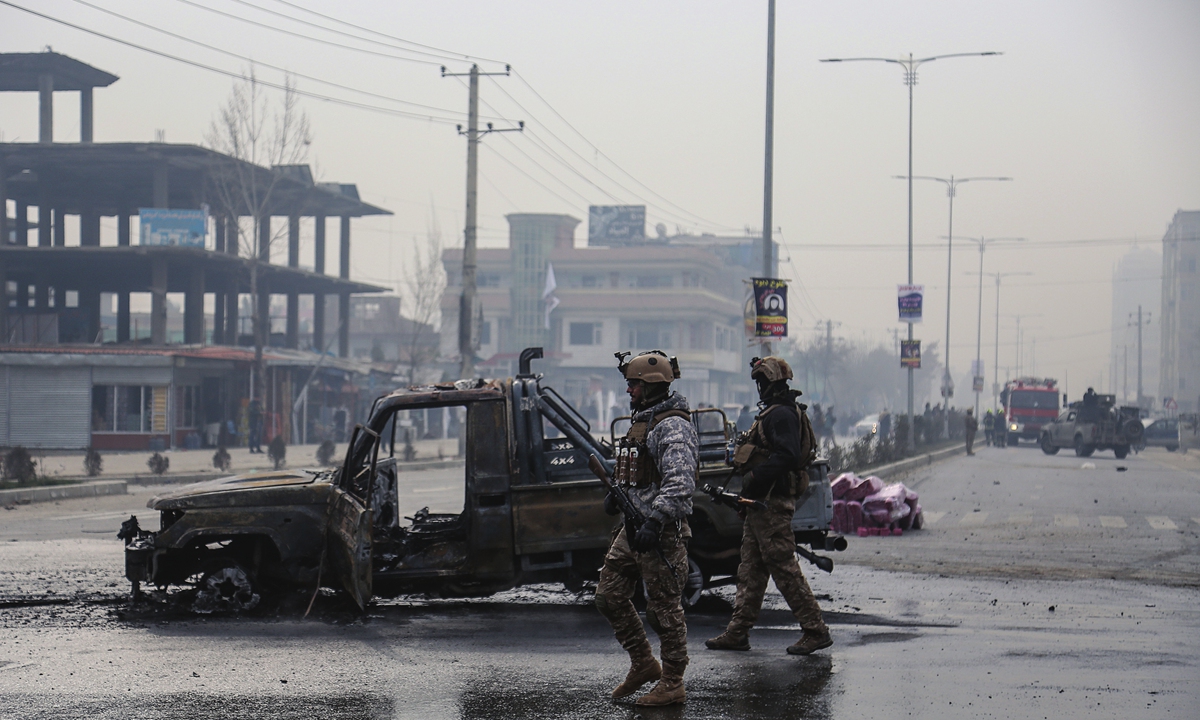
Members of the Afghan security forces stand at the site of an attack in Kabul, Afghanistan on Sunday. A car bomb killed eight people and wounded more than 15 others earlier that day, officials said, the latest attack to rock the Afghan capital. Photo: AFP
A string of assassinations has sowed fear and chaos across Afghanistan as a fresh round of peace talks between the Afghan government and the Taliban begin in Qatar on Tuesday.
Months of deliberations have yielded little so far, but both parties made something of a breakthrough last year when they finally agreed at least on what to discuss in the next round.
Afghan government negotiators will push for a permanent cease-fire and to protect the existing system of governance, in place since the ouster of the Taliban in 2001 by a US-led invasion in the wake of the September 11 attacks.
"The talks are going to be very complicated and time-consuming," Ghulam Farooq Majroh, a government negotiator told AFP. "But we are hopeful to arrive at a result as soon as possible as people are tired of this bloody war."
The first direct talks opened in September after months of delays, but quickly became bogged down by disputes on the basic framework of discussions and religious interpretations.
A concerted diplomatic effort from Washington finally led to a consensus.
The negotiations follow a landmark troop withdrawal deal signed in February by the Taliban and Washington, which saw the US pledge to pull out all foreign forces from Afghanistan by May 2021.
The talks between the Afghan government and the Taliban have been marred by an increase in violence from the start, but a new trend is a wave of high-profile targeted killings of officials, activists, and journalists.
The deputy governor for Kabul province, five journalists and a prominent election activist have been among those assassinated in Kabul and other cities since November.
Officials blame the Taliban for the mayhem, although the jihadist Islamic State group has claimed some of the assaults.
"The Taliban aim to divide the people and trigger criticism and frustration against the government's security institutions with these assassinations," Javid Faisal, an adviser to the National Security Council, told AFP.
"But the killings are uniting people."

